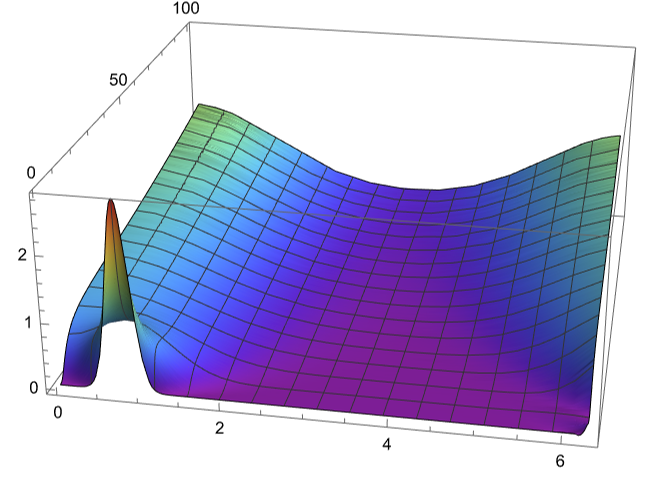I have the following equation $$\frac{\partial\,P(\theta,t)}{\partial t} = \alpha\cos\theta\,P(\theta,t) + \beta \frac{\partial^2\,P(\theta,t)}{\partial \theta^2} $$ subject to following conditions$$P(\theta, 0)=\delta(\theta-\pi/4), P(\theta,t)=P(\theta+2\pi,t)~.$$
I tried solving this numerically in Mathematica:
alpha = 0.02
beta = 0.02
fokkerPlanck = {D[p[x, t], t]==alpha*Cos[x]*p[x,t] + beta*D[p[x,t],{x,2}], p[x,0] == DiracDelta[Pi/4], p[2Pi, t] == p[0, t]};
sol = Flatten@NDSolve[fokkerPlanck, p, {x, 0, 2Pi},{t, 0, 100}]
If I run this, I get null solution, so something is weird. Could anyone let me know what is potentially wrong here?

